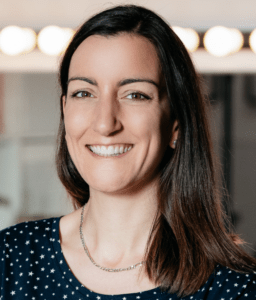Elisa Granato (Coronavirus Vaccine Trail) Wiki/Bio, Age, Husband, Family

Elisa Granato is a British scientist, microbiologist and cancer researcher who has grown in popularity worldwide after volunteering for the coronavirus vaccine track developed by sarah gilbert. She mainly carried out research on microbial ecology, social evolution and infectious diseases.
Quick facts | |
|---|---|
| Born | April 23, 1988 |
| Age | 32 years old |
| Place of birth | united kingdom |
| Education | University of Oxford |
| Search for interests | Microbial ecology, social evolution, infectious diseases |
| Occupation | Microbiologist |
Youth
Elisa Granato was born on April 23, 1987 in the United Kingdom.
Education
Elisa Granato completed her early studies in her hometown and studied collage, then began studying at the University of Oxford where she became a researcher.
Private life
Elisa GranatoMarital or relationship status is not published in any news / source.
Career
Elisa Granato started doing research on simple topics and later became one of the best cancer researchers.
Two volunteers were injected, the first of more than 800 people recruited for the study.
Half receive the Covid-19 vaccine and the other half receive a control vaccine that protects against meningitis but not against the coronavirus.
The design of the trial means that the volunteers do not know which vaccine they will receive, but the doctors do.
Elisa Granato, one of the two who received the shot, told the BBC: “I am a scientist, so I 
wanted to try to support the scientific process whenever possible. ”
The vaccine was developed in less than three months by a team from the University of Oxford. Sarah Gilbert, professor of vaccination at the Jenner Institute, led the preclinical study.
“Personally, I have a lot of confidence in this vaccine,” she said.
“Of course, we need to get human data and tests. We need to demonstrate that it really works and keeps people from being infected with the coronavirus before using the vaccine in a larger population. “
Professor Gilbert had previously said that she was “80% sure” that the vaccine would work, but now prefers not to rate it because she is simply “very optimistic” about the odds. (Source: BBC)












